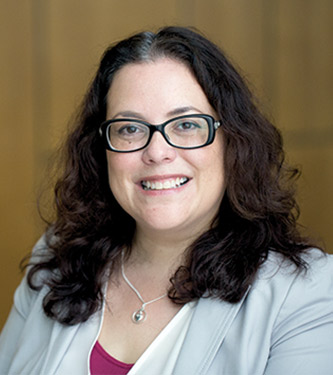Pursuing Better Health

The Community Health Cluster approach treats the community as collaborators rather than a subject to be studied.
In working on public health efforts in places as diverse as El Salvador and Milwaukee, Wisconsin, Julia Lechuga has seen first-hand the importance of gaining community members as partners in defining problems and implementing interventions.
"It's more bottom up, instead of the researcher coming to the community and saying, 'I have this idea, I want to collect data from you, I want to implement this to better the health of the community,'" she said. "Now you are starting the process with the community in the first place, and they are equal partners in the process."
Lechuga, an assistant professor of Counseling Psychology, joined the Lehigh faculty in Fall 2016. She is the "last critical piece" of the university's Community Health Cluster, said College of Education Dean Gary Sasso. The cluster will partner with area neighborhoods to pinpoint problems, collect data and find solutions.
Lechuga was born and raised in a bilingual household in El Paso, Texas, and speaks English, Spanish and French. She received her bachelor's, master's and doctoral degrees in psychology at the University of Texas at El Paso and was a National Institutes of Health/National Research Service Award postdoctoral fellow at the Medical College of Wisconsin in Milwaukee for two years before joining the faculty there as an assistant professor of psychiatry and behavioral medicine. In 2013, she accepted a position as assistant professor of psychology at University of Texas at El Paso.
Lechuga has been part of several NIH grants, including one to help educate families in largely Latino neighborhoods in Milwaukee on issues such as sexually transmitted diseases and birth control. She also helped the Wisconsin Department of Health educate parents on the benefits of vaccinating their children against Human Papillomavirus (HPV), the most common sexually transmitted infection in the United States. In El Salvador, she used a grant to help communities develop plans to reduce the transmission of HIV by crack users.
The Community Health Cluster approach treats the community as collaborators rather than a subject to be studied, she said. It can take time to win the trust of neighborhood leaders, who need assurance that the work is more than an academic exercise.
"It's not only about data collection," Lechuga said. "They need to see that there is an immediate turnaround. They have the benefit of the community eventually owning whatever the intervention was they developed and sustaining it."
Story by Margie Peterson
Posted on:


